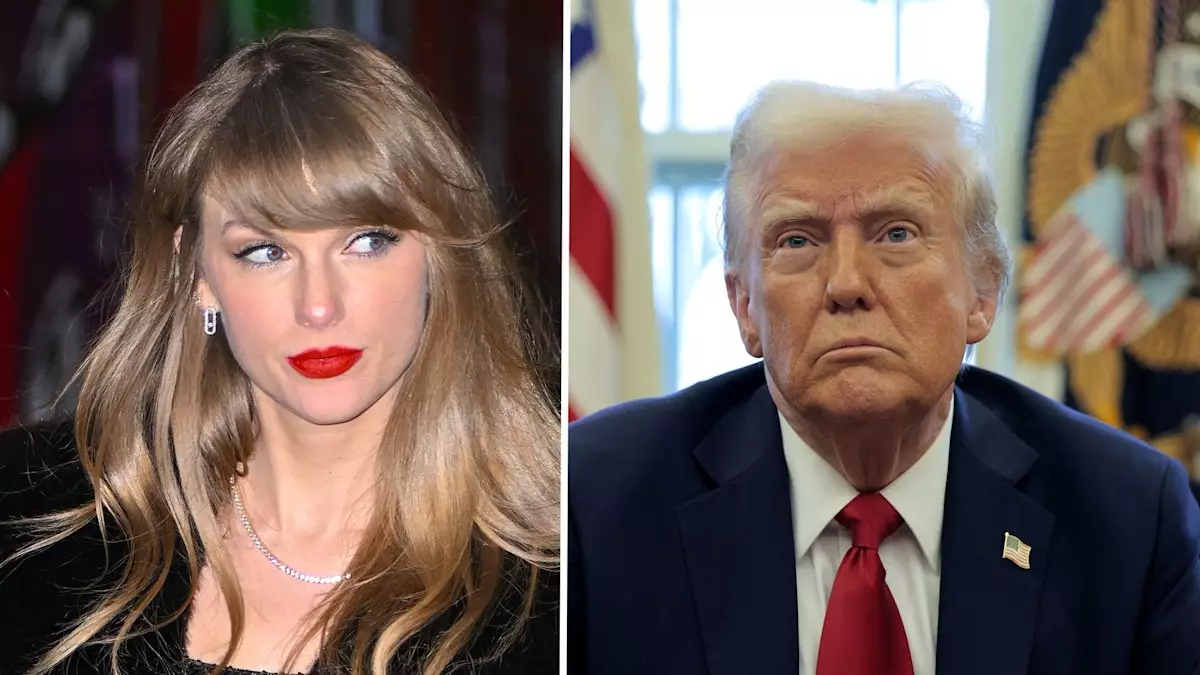In what can only be described as an eyebrow-raising commentary, former President Donald Trump turned to his social media platform, Truth Social, to lash out at pop superstar Taylor Swift. This eruption is not merely a random shot fired in the echo chamber of celebrity culture; it reflects a deeper narrative of political animosity intertwined with pop culture. Trump’s peculiar statement—”Has anyone noticed that, since I said ‘I HATE TAYLOR SWIFT,’ she’s no longer ‘HOT?'”—might come across as trivial at first glance, but it symbolizes a rift between two worlds: that of celebrity influence and political discourse.
This isn’t the first time Swift has found herself in the crosshairs of political commentary. The ongoing feud seems to have blossomed since 2020 when Taylor, breaking her political silence, backed Democratic candidates. In the realm of celebrity politics, such endorsements can sway public sentiment, and Trump’s reaction could be interpreted as a defense mechanism against perceived threats from influential figures.
Springsteen’s Dissent and Trump’s Indignation
Following his comments about Swift, Trump swiftly (no pun intended) turned his ire toward iconic musician Bruce Springsteen. The “Born in the USA” singer made headlines for calling out what he deemed the “treasonous” actions of the US government during a concert in Manchester, England. Trump’s vehement reply—labeling Springsteen as “Highly Overrated” and referencing his physical appearance—seemed more like a personal attack than a political rebuttal. The nerve behind such comments raises questions about how power figures respond to dissenting voices.
This exchange underlines a critical dynamic in American politics today: the constant clash between cultural icons and political officials. Springsteen’s criticism of America’s current political landscape, contrasted with Trump’s personal insults, illuminates a troubling reality where discourse is too often reduced to disparagement rather than civil debate.
The Personal Is Political
The intertwining of personal grievances and political statements in Donald Trump’s commentary underscores a trend familiar in today’s political climate—a trend where personal opinions overshadow substantive discourse. The underlying motivations for Trump’s attacks seem to stem from a wounded ego rather than any practical political rationale. Notably, Swift’s activism and Springsteen’s critique challenge Trump’s view of American nationalism, and such confrontations catalyze the tension that lies between celebrity-led activism and traditional political power.
Remarkably, despite this public feud, Trump’s own family members, including his daughter Ivanka and granddaughter Arabella, are die-hard fans of Taylor Swift. The irony here is palpable: Trump’s public disparagement of Swift stands in stark contrast to the admiration his family expresses towards her. This duality highlights how celebrities can serve as both symbols of political dissent and beloved figures within certain demographics.
A Broader Commentary on American Culture
Ultimately, this saga between Trump, Swift, and Springsteen illustrates the complicated relationship American culture has with fame and politics. As celebrities become increasingly influential in political discourse, conflicts will inevitably arise between those who embrace such influence and those who feel threatened by it. Celebrities are not merely entertainers; they have become pivotal players in shaping public opinions and challenging established norms.
Trump’s commentary reveals an acute awareness of this cultural power dynamic. His attempts to belittle Swift and Springsteen can be viewed as efforts to reassert control in an arena where he feels his legacy is being questioned. It’s a reminder that, in a world where social media dictates narratives, the conversation often devolves into superficial attacks rather than thoughtful debate.
In this ongoing saga, the stakes are high as the worlds of entertainment and politics continue to collide. The political landscape, already fraught with division, may only become more tangled as both celebrities and politicians navigate the complexities of their intertwined roles.

